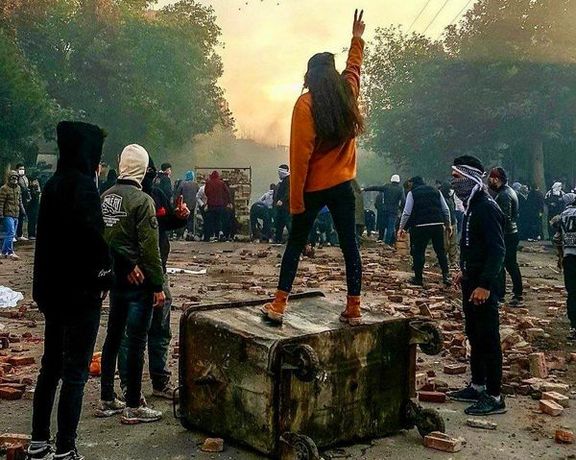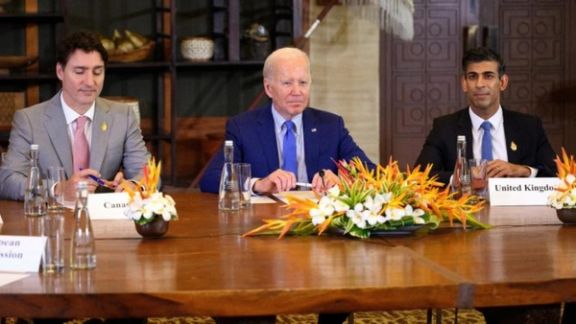World Must Unite To Stop Islamic Republic’s Executions – Experts

A group of more than 230 current and former UN officials, judges, human rights experts, Nobel laureates, and NGOs called on world leaders to intensify pressure on Islamic Republic.

A group of more than 230 current and former UN officials, judges, human rights experts, Nobel laureates, and NGOs called on world leaders to intensify pressure on Islamic Republic.
In their open letter released on Wednesday, they addressed US President Joe Biden, European Council President Charles Michel, UK Prime Minister Rishi Sunak, and Canadian Premier Justin Trudeau as well as UN High Commissioner for Human Rights Volker Türk urging a firm position on the Islamic regime to stop execution of protesters.
The signatories called on world leaders to step up pressure on the Islamic Republic to halt the execution of anti-government protesters, by imposing sanctions on its officials for human rights abuses, expelling Iranian ambassadors and blacklisting the Islamic Revolutionary Guard Corps (IRGC).
The letter was sent to the leaders of Canada, the EU, UK, and US after the authorities in Iran last week executed two young men, one of them in public, for taking part in the ongoing popular protests – ignited by the death in custody of 22-year-old Mahsa Amini -- and threatened to hang more people as a measure to intimidate protesters against holding further rallies and strikes.

The signatories include a former President of the UN Human Rights Council, three former UN Assistant Secretaries-General, 17 former UN human rights Special Rapporteurs, 15 Nobel laureates, and many other distinguished human rights figures. International judges who signed the appeal include a former President of the International Criminal Court (ICC), a former President of the Court of First Instance of the European Communities, and five former Judges of the EU General Court. Some 34 NGOs and university institutions were also among the signatories.
Expressing their concerns over the regime’s decades-long record of executions, they also mentioned the mass executions of political prisoners, mostly members the exiled opposition group MEK (People’s Mojahedin Organization of Iran), who “were extra-legally executed or forcibly disappeared during the 1988 massacre.”
Denouncing “decades of apparent silence and inaction by the international community” that have helped “fuel a culture of impunity in Iran,” the signatories said, “Since the 1980s, the authorities in Iran have extra-judicially executed tens of thousands of dissident protesters and political prisoners, some as young as thirteen.”
The scholars called on the world’s leading democratic nations to act urgently to prevent the Iranian authorities in their attempts to quell the ongoing protests through the use of the death penalty in contravention of international law now while brave young Iranians continue their defiant protests to end decades of tyranny.
Urging the international community to hold the leadership of the Islamic Republic to account for committing crimes against humanity and the killing of children and public hanging of protesters, they called for using all internationally available means to bring the regime’s authorities to justice.
They also asked for more targeted economic sanctions that would help cut off funds to the state’s machinery of repression, and in particular blacklist the IRGC and its affiliated entities that are leading the crackdown. They finally demanded that world countries downgrade diplomatic ties with the Islamic Republic, including by withdrawing your ambassadors and likewise expelling the representatives of what is in fact a murderous government.”
Earlier in the day, Human Rights Watch confirmed that the Islamic Republic security forces used excessive and unlawful lethal force against protesters in Kordestan’s provincial capital, Sanandaj, in October and November 2022
“The Iranian authorities have unleashed alarming violence against protesters in Sanandaj since September,” said Tara Sepehri Far, senior Iran researcher at Human Rights Watch, adding, “Both the protests and the government’s brutal response to them reflect the government’s longtime repression of the Kurdish people’s cultural and political freedoms.”